10 Ways to Lose Those Last 10 Pounds
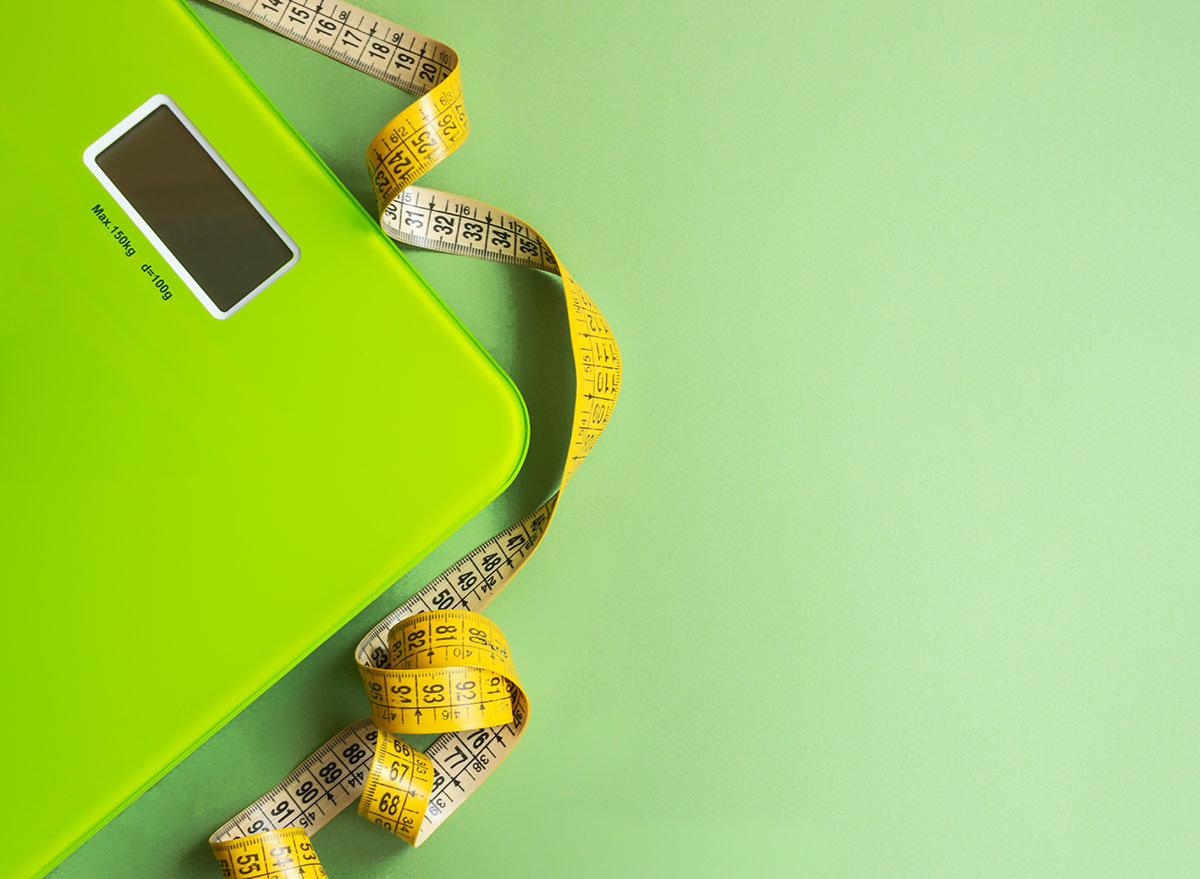
It’s the most frustrating scenario: You’ve been working hard for months, continuously losing weight at a healthy pace, and all of a sudden the scale stops budging when you’re so close to your goal. It’s like stopping an episode of a TV show you’ve been binge-watching before the last ten minutes.
What gives?
A lot of things, actually. Losing the last 10 pounds is traditionally the hardest, but it’s not totally impossible. With these helpful tricks though, you’ll finally be able to comfortably slip into your skinny jeans once and for all. And to never miss a weight-loss goal, check out these 15 Underrated Weight Loss Tips That Actually Work.
Measure your food
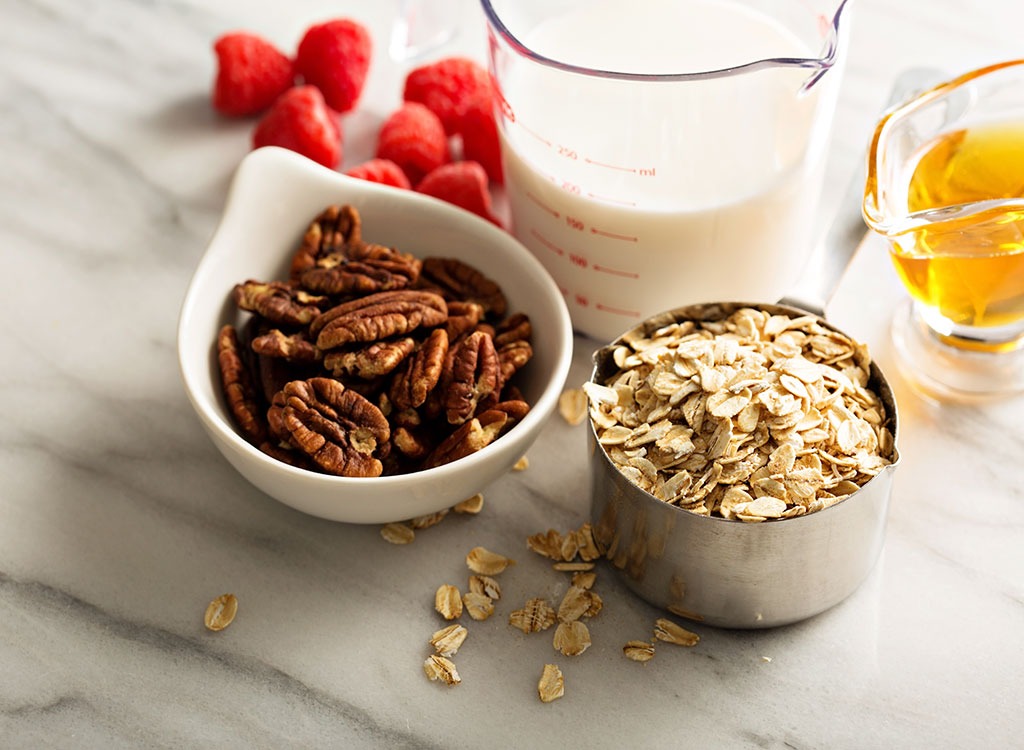
Extra calories can easily slip in throughout the day if you’re not careful with portions. You may think you can eyeball what a serving of rice or a handful of nuts looks like, but oftentimes people underestimate just how many calories they’re actually ingesting at every meal.
“A lot of people don’t focus on the little things, like not measuring your portion sizes for dinner and overeating on your chicken or your carbohydrates,” Jim White, RD, ACSM, owner of Jim White Fitness and Nutrition Studios, says. “A lot of it can be portion control. Buy measuring scoops and a food scale.”
It may seem tedious, but once you accurately can measure out just how much you are eating, you can accurately stay within your targeted caloric range. A serving of meat should be 3 ounces, and you’re serving of grains like rice or pasta should be about half a cup—totally easy to bypass if you’re not careful.
Drink your coffee black

If you’re one of those people who can’t function without a cup (or three) of joe in the morning, don’t worry; coffee by itself is all-natural, virtually zero calories, and can help you lose weight, according to research. The problem is when you add in sugar and creamer.
“A lot of times you might think, ‘well, those are little things. That’s not going to really add up,’ but they do add up in the big picture,” White says. Even a splash here or a pinch there can make a calorie difference; one tablespoon of half-and-half has 20 calories, and a teaspoon of sugar has 16. After two cups, that’s 72 calories. By the end of the week that’s more than 500 calories just from your coffee alone. Opt for black coffee instead and sprinkle some cinnamon on top.
Watch mindless munching
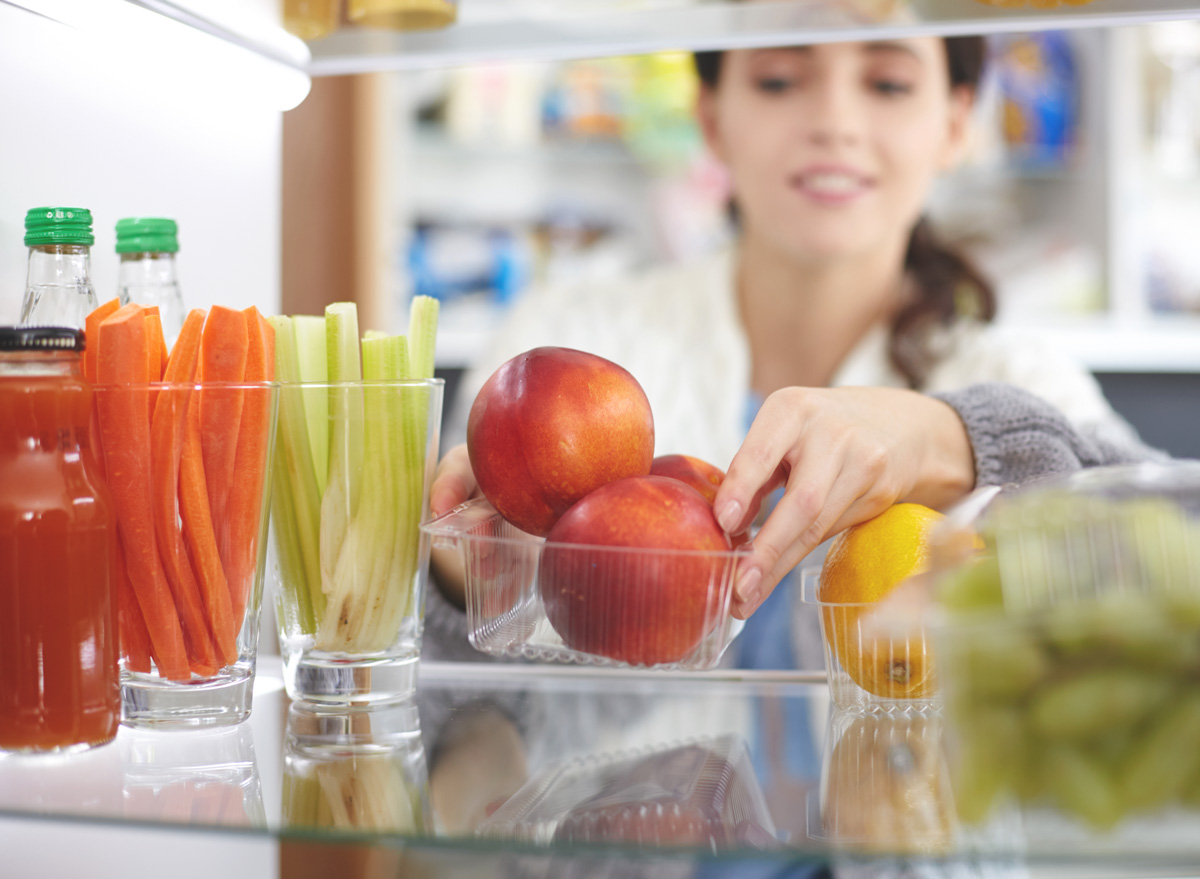
So all of your meals and snacks are perfectly portioned, you’re eating plenty of vegetables throughout the day, and the scale still won’t budge. It’s likely all those extra calories you’re eating without thinking about them: a handful of M&Ms here and there, grabbing some fries from your partner’s plate, taking a brownie from the break room.
“You’ve got to watch the little things throughout the diet. It could be those little nibbles you have of a cookie or grabbing a few pieces of chocolate,” White says. “Just an extra 500 calories a day is going to cause a weight gain of maybe a pound a week. Those little things throughout the day, we really have to be mindful about.”
Looking for more helpful tips? Sign up for our newsletter to get daily recipes and food news in your inbox!
Write it down
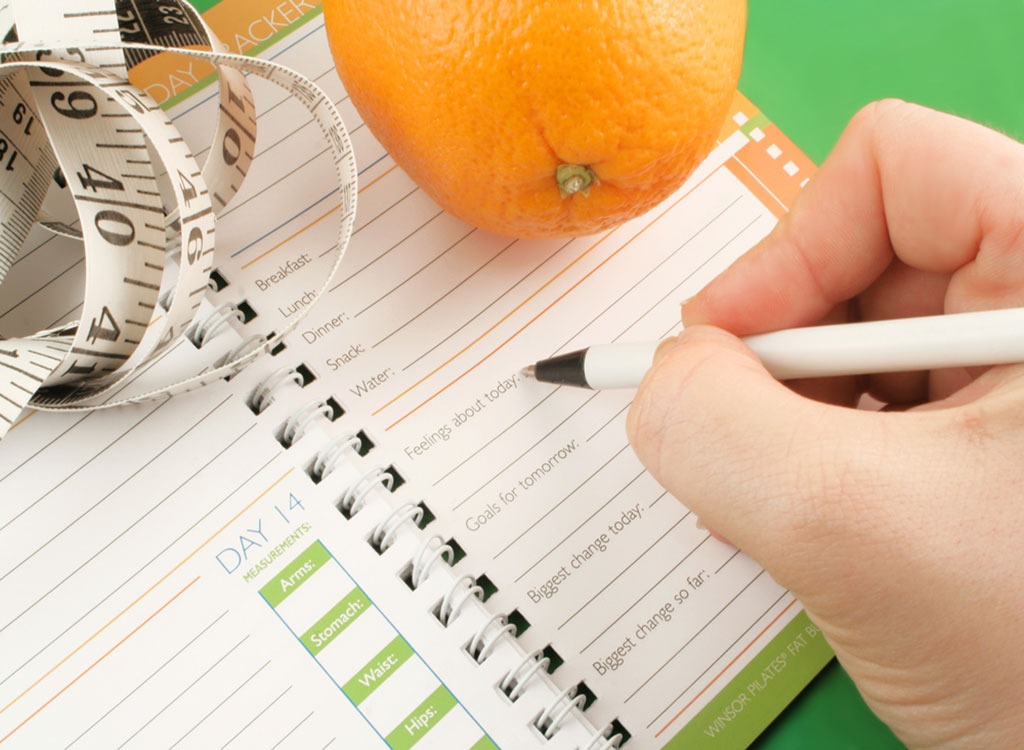
Even if you think you’re on point with your portions and calories, writing it all down will give you perspective on just how much you are eating throughout the day, and where you could make improvements.
“Recording your food is really important. A lot of times, studies show that you have actually a 30 percent adherence rate by writing down your foods or keeping an app like My Fitness Pal,” White says. “It keeps you honest. You see how much you’re actually eating, especially if you’re working with a professional, like a dietitian. It can really help to give them data.” Unless you’re working with a dietitian or doctor, no one needs to see your food journal except yourself, so be as honest as possible to get the best results.
Allow for an indulgence
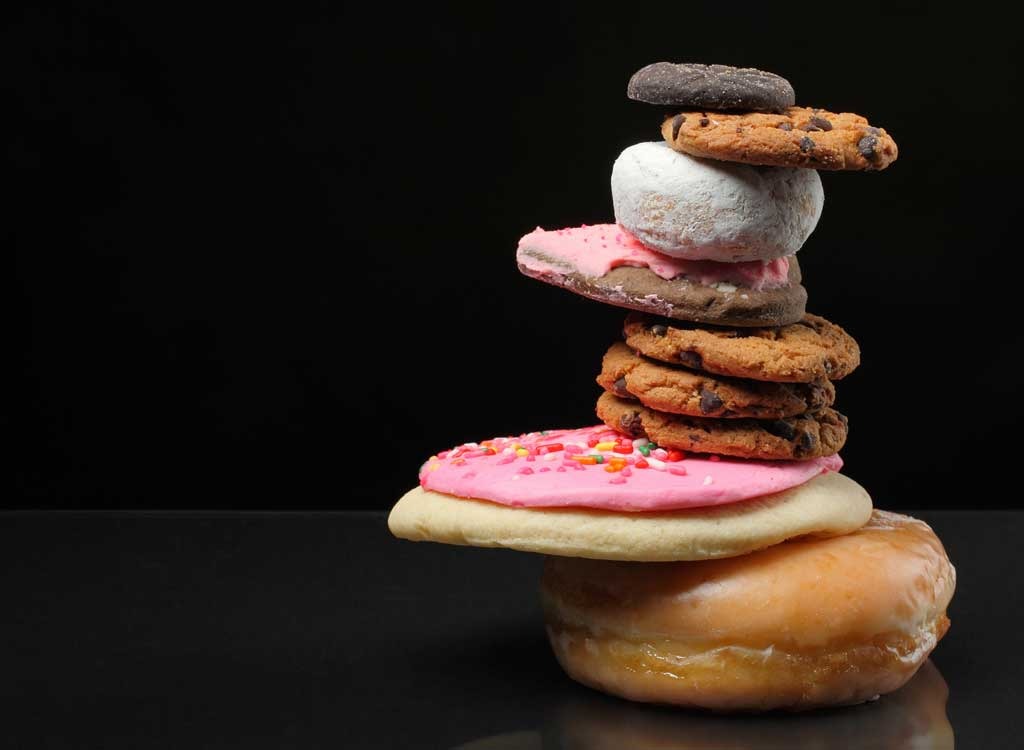
It may seem counterintuitive to “cheat” when you’re working so hard toward a goal, but that might be just what your body needs.
“When people diet and they’re just trying to lose ten pounds, they don’t want to cheat at all. What ends up happening is our willpower ends,” White says. “A lot of times if we don’t cheat or we don’t indulge, we’re more likely to fall off the wagon. So I always recommend having at least one indulgent meal at the end of the week. It speeds up your metabolism. It can give you some of those fat-soluble vitamins you might not have received for the week, and also it’s good for your psyche to be able to have an indulgence and have a little allowance at the end of the week to get you through the week.”
So set aside one cheat meal at the end of the week, maybe it’s dinner out with your friends or ordering a pizza. Once you’ve enjoyed your indulgence, you can get right back on track the next day, and look forward to the next indulgence.
Rev up your cardio

Although keeping your eating habits in check is more important for weight-loss, exercise definitely plays a role, too. White recommends a caloric deficit of at least 500 calories a day. A tough 45-minute spin class, running on the treadmill for 45 minutes at a 10-minute mile pace, or rowing for about an hour at a moderate pace should all get the job done.
Start lifting weights

Additionally, if you’re just a cardio fiend, you may need to add some strength training into your regimen to reap more fat-burning benefits. Although people are worried about bulking up, building lean muscle actually burns more body fat at rest and can speed up your metabolism over time. For best results, combine cardio and weight training, like with a high-intensity interval training routine that uses weights and rapid movement.
Eat at home
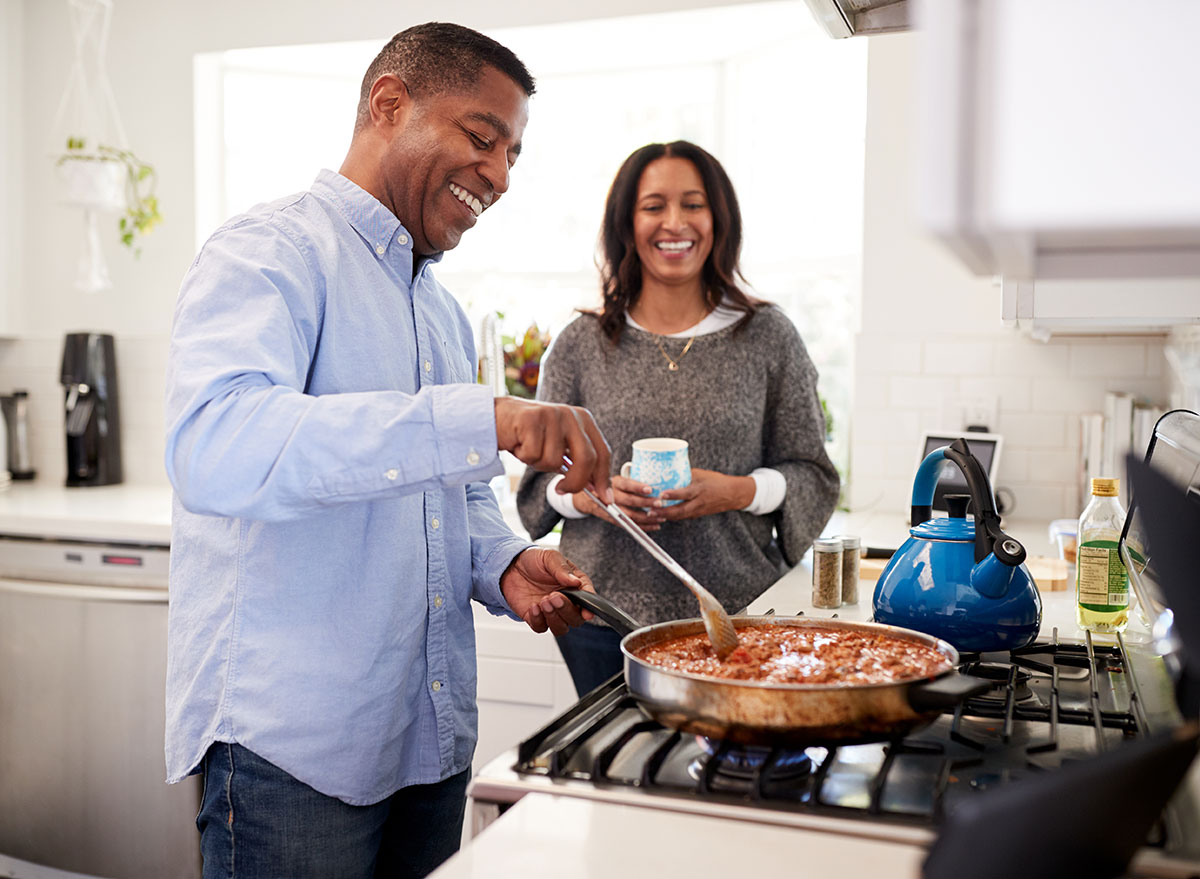
You may think you know what’s going on your plate when you order from a restaurant, but there are likely so many extra calories and ingredients lurking in even the healthiest-seeming dishes. Portions are usually out of control, and establishments tempt you with bread baskets and chips and salsa; it’s no wonder the average person ends up eating 200 more calories when they dine out, according to a study published by Public Health Nutrition. Plus, most restaurants cook with belly fattening vegetable oils, which have been deemed worse than sugar. Moral of the story: Eat the majority of your meals at home so you know exactly what’s going into them.
Stop stressing

Eliminating the major stressors in your life is easier said than done, but it can have a huge impact on your waistline. When you’re stressed, your body goes into overdrive producing the stress hormone cortisol, which makes you hungry and prompts your body to store calories as fat, especially in your belly. Although getting rid of chronic stress is easier said than done, try to de-stress through exercise, meditation, reading, or, if possible, seeing a therapist. In the meantime, make sure you’re eating these foods that fight cortisol.
Hit the sack

Getting 7-8 hours of sleep might seem like a pipe dream for some, but it’s essential for overall health and well-being. Getting plenty of Zzzs impacts your stress level, mental function, and even your waistline. A study published in the journal Sleep found that people who didn’t get the recommended 7-8 hours of sleep a night were more likely to gain weight. One theory is that sleep deprivation makes you hungrier the next day, and crave your favorite high-calorie comfort foods—not ideal if you’re trying to drop the last 10 pounds!